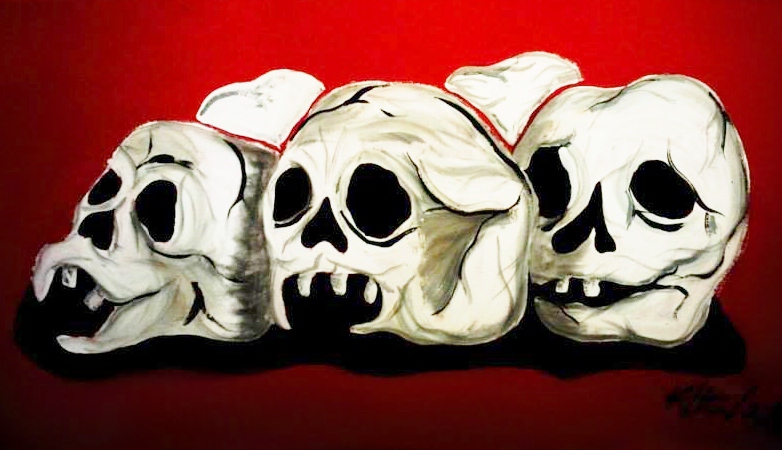The UN Human Rights Council’s decision to give the new government 6 months to cooperate with the OHCHR Investigation on Sri Lanka (OISL), in view of gathering more information, and defer the publishing of the UN inquiry into mass atrocities till September, has been met with mixed reactions. Whilst Colombo celebrates what it sees as a diplomatic coup, human rights groups have cautiously welcomed the prospect that more evidence can be found. However, Tamil victims, witnesses and campaigners for justice have expressed deep disappointment that justice, denied to them for so long, is delayed once again.
Describing it as a “difficult decision”, the High Commissioner for Human Rights, Zeid Ra’ad Al Hussein’s acknowledged the inevitable disappointment of witnesses, but said the decision was based on the promise of “broad cooperation” by the new government and the prospect of “a stronger and more comprehensive report”. Mr Zeid’s unequivocal statement that the deferment was “for one time only” and his personal commitment to ensure its release at the Council’s 30th session is welcome. However, despite the new government’s very basic promises (outlined in the foreign minister’s letter to Mr Zeid), the Tamil people’s deep scepticism that it will deliver on them remains palpable - nowhere more so than in the North-East.
Beyond the calls from the Tamil Civil Society Forum and the Jaffna University Teachers Association for the UN inquiry report to be released to schedule, recent weeks have seen a wave of protests across the Tamil homeland by mothers, wives and loved ones of those killed or missing, demanding an international inquiry. Moreover, the Tamil people’s unflinching demand for justice through an international mechanism, which is too often sidelined as the demand of only the diaspora, was encapsulated last week in the resolution passed by the Northern Provincial Council (NPC) last week.
The resolution, emphatically endorsed by voices in the East, both Tamil political parties in the North-East and Tamil diaspora organisations worldwide, called for the OISL to investigate the genocide of Tamils by successive Sri Lankan governments, and for the UN Security Council to refer Sri Lanka to the International Criminal Court as the only means of ensuring justice. Pointing to "Sri Lanka's instituitionalised impunity" over Tamil crimes, the resolution, tabled by the widely respected former Supreme Court judge and chief minister of the Northern Province, C V Wigneswaran, firmly rejected any notion of a domestic commission. “Tamils have no hope for justice in any domestic Sri Lankan mechanism, whether conducted by the Rajapaksa regime, Sirisena regime, or its successor" the NPC said, urging any investigative process "to be driven and carried out by the international community".
As the High Commissioner himself stated in his letter to the Council, Sri Lanka has a long history of failed and obstructed domestic commissions - described by Amnesty International as ‘Twenty Years of Make Believe’. The next six months must not be allowed to pave the way for more of the same. The Sri Lankan government must allow a robust in-country evidence collection process, ensuring OISL investigators, UN working groups and Special Rapporteurs free and unfettered access to the Tamil areas and former conflict zones. Moreover, it is self-evident that for witnesses and victims to safely come forward, without fear of repercussions, and for investigators to have unhindered access to mass grave sites and the killing fields across the North-East, the Sri Lankan military - who stand principally accused of perpetrating the crimes in question - must be removed from the Tamil areas. The detention of Tamil political activists and campaigners, most notably, the prominent disappearances campaigner, Balendran Jeyakumary, who remain key sources of evidence must end. The proscription of Tamil diaspora groups, who were instrumental in calling for justice and using their well-established network of contacts to ensure witnesses are contacted, must be revoked.
As the UN’s internal review panel on its conduct in relation to Sri Lanka concluded in 2012, the body failed to “adequately respond” to the clear evidence of mass atrocities being committed against the Tamil people during the end of the armed conflict in 2009. The time for the body to put right its failures and see justice is served is long overdue. The victims, who came forward to give their testimonies at grave risk to themselves and are now being asked to wait six more months, cannot have waited in vain. It beholds the international community to ensure the delay, built on the pledges of Sri Lanka’s new government to cooperate with the OHCHR Investigation on Sri Lanka (OISL), fulfills its promise of delivering a stronger and more comprehensive report.
 |
| Illustration Keera Ratnam |
